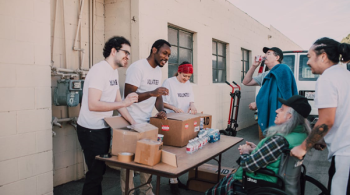One of the greatest fears for a caregiver is when something terrible happens to their loved one. That fear is called anticipatory grief and is something many caregivers experience, even though they might not admit it.
Sometimes the thing that goes wrong is an injury or an illness and a loved one being unresponsive. Knowing what to do in these situations is vital to avoid compounding the problem. The best thing you can do as a caregiver is to prepare because you never know when you might need to take action.
Here’s a look at what you should consider before and what to do when someone is unresponsive.
Identify Possible Causes of Unresponsiveness
Mental health issues like depression or a psychotic break can cause unresponsiveness. Alcohol and the effects of medications can also be contributing factors. Additionally, it can be caused by a sleep disorder, lack of oxygen, illness, infection, or heat exhaustion.
Administer CPR
CPR can be performed on anyone of any age, although the technique varies depending on the age and size of the person. The two main elements of CPR are chest compressions and mouth-to-mouth breathing.
Chest compressions help circulate the oxygenated blood flow to the brain and other organs and stimulate the heart. Mouth-to-mouth breathing delivers air into the victim’s lungs.
To administer CPR, it is important to call 911 first, lay the person down, tilt their head back, check their airway, pinch their nose shut, and provide two rescue breaths. If you want to administer CPR properly, it’s best to look for an organization where you can learn more and get certified first.
Contact Emergency Services
When calling emergency services, be prepared to provide the person’s exact location and, if possible, the nature of the incident. Also, prepare to answer questions such as on the precise condition of the person.
If you are unsure of what exactly has happened, still call, as the dispatchers will guide you in providing information or will connect you with a medical professional if required. Do not leave the person alone since their condition can worsen, and they may need CPR or other medical help.
Follow Up After the Response Is Established
Depending on the situation, this can involve calling their family, physician, or responsible healthcare provider. This may also include regular check-in calls, visits, or setting up an alarm system to ensure an immediate response in case of any issues.
Learning How to Deal With Unresponsive Individuals
In conclusion, if you come across a situation where someone is unresponsive, call 911 and stay with them until medical care arrives. Make sure the person is comfortable, attempt to rouse them and watch for any changes in breathing and color. Do your best to provide basic first aid and observe their breathing and pulse.
Taking the proper precautions can help save a person’s life. Don’t hesitate to do the right thing and seek medical help.
If you liked this article, be sure to check out the rest of our website for more informative content.





